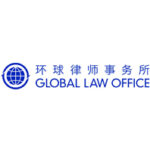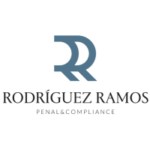-
What is the legal framework (legislation/regulations) governing bribery and corruption in your jurisdiction?
In the Italian legal system, the majority of the provisions governing corruption are set out in the Criminal Code, the Civil Code, and Legislative Decree No. 231/2001.
Offences relating to the corruption of public officials – along with other related offences – are set out in Title II of Book II of the Criminal Code, which addresses «offences against the public administration».
The Civil Code, on the other hand, addresses offences concerning private-sector corruption.
Lastly, Legislative Decree No. 231/2001 is particularly crucial from a business perspective, as it provides that legal entities may be held liable for the commission of corruption offences.
-
Which authorities have jurisdiction to investigate and prosecute bribery and corruption in your jurisdiction?
In the Italian legal system, only the Public Prosecutor’s Offices (“Procura della Repubblica”) are entitled to conduct investigations and prosecute criminal offences, including corruption. No other institution or authority can charge individuals with corruption.
Investigations are carried out under the direction of the Public Prosecutor’s Office, with the support of law enforcement agencies (such as the State Police). In cases involving corruption, prosecutors are granted broader investigative powers than those typically available for the prosecution of less serious offences (such as the use of wiretaps).
Investigations into corruption offences may also be conducted by the European Public Prosecutor’s Office (EPPO). Corruption falls under the EPPO’s jurisdiction when it affects the financial interests of the European Union (for example, in cases of corruption involving the awarding of a public contract, the EPPO’s jurisdiction is triggered if EU financial resources are implicated).
Finally, the National Anti-Corruption Authority (ANAC) is entrusted by law with substantial responsibilities and powers in the area of anti-corruption. However, as an administrative authority, it does not hold the investigative powers granted to the Public Prosecutor’s Offices: its primary role is the prevention of corruption, rather than its repression, which falls exclusively within the competence of the Judicial Authority.
-
How is ‘bribery’ or ‘corruption’ (or any equivalent) defined?
There is no statutory definition of corruption. However, in light of the relevant provisions of the Criminal Code, corruption can be defined as any act of giving, offering, or promising – as well as any act of soliciting, receiving, or accepting – unlawful money or any other benefit in exchange for the performance or omission of an act that constitutes a breach of the duties or obligations inherent to one’s office.
The Criminal Code distinguishes between:
- Bribery for the exercise of official functions (Article 318 of the Criminal Code): this offence is committed by a public official who, in relation to the exercise of his or her functions, unlawfully receives money or any other benefit, or accepts the promise thereof;
- Bribery for an act contrary to official duties (Article 319 of the Criminal Code): this offence occurs where a public official, in order to omit or delay, or for having omitted or delayed, an act within the scope of his or her duties, or in order to perform or for having performed an act contrary to official duties, receives money or any other benefit, or accepts the promise thereof.
The main difference between the two offences concerns the nature of the unlawful benefit. In cases of bribery for the exercise of official functions, the official generally places him or herself at the disposal of the briber. On the other hand, in cases of bribery for an act contrary to official duties, the undue benefit is directly linked to a specific act that breaches official duties.
-
Does the law distinguish between bribery of a public official and bribery of private persons? If so, how is 'public official' defined? Is a distinction made between a public official and a foreign public official? Are there different definitions for bribery of a public official and bribery of a private person?
The Italian law clearly distinguishes between the corruption of public officials, which is regulated in the Criminal Code, and the corruption of private individuals, which is addressed in the Civil Code despite being a criminal offence.
The corruption offences governed by the Criminal Code include, among the potential recipients of bribes, not only “public officials” but also “persons entrusted with a public service”. These two categories are expressly defined by law:
- “public officials” are those who perform a public legislative, judicial, or administrative function;
- “persons entrusted with a public service” are those who perform a public service, but whose role lacks the typical powers of a public function (e., decision-making, authorisation, or certification powers).
It should be noted that the classification of a person as a public official or as a person entrusted with a public service does not depend on the public nature of the entity to which they belong, but rather on the public nature of the function they actually perform. This means that even a person working for a private company may be classified as a public official or as a person entrusted with a public service.
With regard to foreign public officials, the Italian Criminal Code expressly extends the applicability of corruption offences to a broad range of foreign individuals (e.g., members of the European Parliament), on condition that such individuals perform a public function comparable to that of public officials or persons entrusted with a public service.
As previously mentioned, private-sector corruption is governed by the Civil Code, which provides for the offence of corruption between private individuals (Article 2635 of the Civil Code) and the offence of incitement to corruption between private individuals (Article 2635-bis of the Civil Code).
Corruption between private individuals arises when directors, general managers, executives responsible for drafting corporate accounting documents, auditors, or liquidators solicit or receive undue money or other benefits, or accept a promise thereof, in order to perform or omit an act in breach of the duties relating to their office.
As with corruption involving public officials, in cases of private-sector corruption, not only the recipient of the bribe (the corrupted party), but also the person offering the bribe (the briber), commits a criminal offence and is subject to penalties comparable to those imposed on the corrupted party.
-
Who may be held liable for bribery? Only individuals, or also corporate entities?
According to Legislative Decree No. 231/2001, the commission of corruption offences may trigger corporate liability. Both corruption offences set out in the Criminal Code and those set out in the Civil Code are included in the so-called catalogue of relevant offences contained in the Decree.
However, corporate liability does not arise automatically. It must be established that: (i) the offence was committed by a director or employee; (ii) the offence was committed in the interest or to the advantage of the entity; and (iii) the natural person may have committed the offence due to an “organisational failing” on the part of the entity, namely its failure to implement an adequate compliance model capable of preventing the commission of such offences.
-
What are the civil consequences of bribery and corruption offences in your jurisdiction?
The corruption offences provided for in the Criminal Code are offences against the public administration. Nonetheless, both private entities and natural persons may also suffer harm as a consequence of the commission of corruption offences (for instance, a company participating in a public tender may lose the contract because a competitor has bribed members of the awarding authority).
According to Article 185 of the Criminal Code, any offence that causes harm gives rise to an obligation on the part of the offender to provide compensation. From a procedural standpoint, an injured party may seek redress by participating in the criminal proceedings as a civil party, in accordance with Article 74 of the Code of Criminal Procedure.
The commission of corruption offences may lead to further non-criminal consequences. From an employment law perspective, for instance, it could constitute “just cause” for the dismissal of the offender. In terms of administrative law, the discovery of corruption in the context of a public procurement procedure could result in the revocation of the contract award.
-
What are the criminal consequences of bribery and corruption offences in your jurisdiction?
Imprisonment constitutes the primary criminal penalty applicable to corruption offences. For instance, in the case of so-called corruption for an act contrary to official duties (Article 319 of the Criminal Code), the applicable penalty is imprisonment for a term ranging from six to ten years.
In addition to imprisonment, the law provides for the imposition of further sanctions of a different nature, including:
- permanent disqualification from holding public office (Article 317-bis of the Criminal Code);
- permanent disqualification from entering into contracts with public administration bodies (Article 317-bis of the Criminal Code);
- confiscation of the price or profit of the offence, or of assets of equivalent value (Article 322-ter of the Criminal Code);
- an order to pay an amount equivalent to the price or profit of the offence by way of pecuniary compensation to the public administration harmed by the conduct of the corrupt public official (Article 322-quater of the Criminal Code).
Imprisonment also constitutes the principal criminal sanction in cases of private-sector bribery. By way of example, the offence under Article 2635, Paragraph 1 of the Italian Civil Code carries a penalty of imprisonment ranging from one to three years.
Furthermore, a conviction for private-sector bribery may trigger additional sanctions, such as temporary disqualification from holding executive positions within legal entities and enterprises (Article 2635-ter of the Civil Code) and the confiscation of the profit obtained through the offence, the assets used in its commission, or a sum of money of equivalent value (Article 2641 of the Civil Code).
Lastly, pursuant to Legislative Decree No. 231/2001, legal entities may also be held liable in cases of corruption and may be subject to the imposition of sanctions. The sanctions provided for by the aforementioned decree include the following:
- Financial penalties: In the event of a conviction, a financial penalty is always imposed. The amount of the fine is determined on the basis of the seriousness of the offence, the degree of liability of the entity, the entity’s economic and financial condition, and any action undertaken to eliminate or mitigate the consequences of the offence and to prevent further unlawful conduct.
- Disqualification sanctions: These include, for example, disqualification from carrying out a business activity or a prohibition on entering into contracts with public administration bodies.
- Confiscation: In the event of a conviction, confiscation of the price or profit of the offence is always ordered, except for the portion that may be used to compensate the injured party. Where it is not possible to trace the price or profit of the offence, the confiscation of money, assets, or other benefits of equivalent value is ordered.
- Publication of the judgment: In the event of a conviction, the court may order the publication of the judgment.
Lastly, under the Italian Public Procurement Code (Legislative Decree No. 36 of 31 March 2023), a company that is under investigation, indicted, or convicted under Legislative Decree No. 231/2001 may be excluded from both public and private procurement procedures.
-
Does the law place any restrictions on hospitality, travel and/or entertainment expenses? Are there specific regulations restricting such expenses for foreign public officials? Are there specific monetary limits for such expenses?
Under Article 4 of the Code of Conduct for Public Employees (Presidential Decree No. 62/2013), Italian law strictly regulates the solicitation, acceptance, and offering of gifts and benefits by public officials to preserve integrity and impartiality in public service.
Public employees are prohibited from soliciting gifts or other advantages for themselves or others. They may not accept such items, unless they are of modest value, offered occasionally as part of normal courtesy practices or consistent with international customs.
A benefit is considered of modest value if it does not exceed € 150. Each public body may establish stricter thresholds, depending on its institutional context and the nature of the duties performed.
Under no circumstances may a gift, regardless of value, be accepted or requested as a form of compensation for acts connected to official duties, especially from parties who could benefit from such acts.
The acceptance of gifts from subordinates and the offering of gifts to superiors are likewise restricted, except for items of modest value.
Gifts or benefits received outside the permitted circumstances must be promptly reported and handed over to the administration for return or institutional use.
-
Are political contributions regulated? If so, please provide details.
Political contributions are governed by Decree-Law No. 149/2013 (converted into Law No. 13 of 21 February 2014) and by other laws, such as Law No. 659 of 1981 and Law No. 195 of 1974.
The legislative framework concerning the financing of political activity may be summarised as follows:
- Corporate private contributions (i.e., from private companies) are lawful provided if the donation is accompanied by a clear assumption of responsibility by the relevant corporate bodies (e., the contribution must be duly approved by the competent corporate bodies) and is fully disclosed in the company’s accounting records (i.e., it must be recorded in the financial statements). Failure to comply with these requirements constitutes the criminal offence of unlawful political financing;
- Non-corporate private contributions (i.e., from natural persons) are not subject to the same formal requirements but are nonetheless regulated by certain disclosure obligations. In particular, if the donation exceeds €3,000, both the donor and the recipient are required to submit a joint declaration, which must be submitted to the President of the Chamber of Deputies (one of the two houses of the Italian Parliament). Breach of these obligations constitutes an administrative offence;
- Prior to the entry into force of Law No. 13/2014, natural persons and legal entities were not subject to any quantitative limits on donations made to political parties. Following the legislative reform, an annual limit of €100,000 has been established for donations that natural and legal persons may make to political parties. Breach of this limit is likewise subject to an administrative sanction.
-
Are facilitation payments prohibited or regulated? If not, what is the general approach to such payments?
Italy adopts a general zero-tolerance approach to corruption, which expressly includes so-called facilitation payments. Such payments, when made to a Public Official (or a Person in charge of a Public Service), are strictly prohibited and may fall within the scope of the offence of bribery in relation to the exercise of duties under Article 318 of the Criminal Code.
-
Are there any defences available to the bribery and corruption offences in your jurisdiction?
A substantive defence to charges of corruption, whether in the public or private sector, typically revolves around challenging the essential elements of the offence itself.
One potential line of defence is to argue that no corrupt agreement ever existed. In other words, while a benefit may have been given or promised, the defendant might try to affirm that this was a result of an extortion or an abuse of power by his counterparty. In such circumstances, the conduct might fall under the category of extortion (Article 317 or 629 of the Italian Criminal Code, depending on the status/position of the offender) and the party having been coerced into giving a benefit is not punishable, being considered a victim rather than a perpetrator.
Another defence concerns the lack of criminal intent. Italian law requires a wilful element (“dolo”), meaning that the accused must have knowingly and intentionally participated in a corrupt exchange. A defence might claim that the accused acted in good faith, unaware that their conduct could be interpreted as corrupt. For instance, they may have believed the transaction was entirely lawful, or that the counterpart had no official capacity that could be compromised.
In the context of public corruption, a further avenue is to question whether the person allegedly corrupted was actually a public official or a person entrusted with a public service under the Italian Criminal Code. If this qualification does not apply, then the specific offence charged may not stand. Similarly, in cases of private sector corruption, one might argue that the recipient of the benefit did not breach their fiduciary duties, or that the benefit had no real impact on the business decision or interest of the company involved.
-
Are compliance programs a mitigating factor to reduce/eliminate liability for bribery and corruption offences in your jurisdiction?
Yes, compliance programs constitute a mitigating factor to avoid or reduce corporate criminal liability for bribery and corruption committed by employees or executives in the interest or for the benefit of their company.
In order to this mitigating factor to apply, companies must prove that they had adopted an effective compliance program (“Modello di Organizzazione, Gestione e Controllo”) including:
- Risk assessment and mapping of potential criminal conduct;
- Clear procedures and protocols to prevent such conduct;
- Disciplinary measures in case of violations;
- An independent supervisory body (“Organismo di Vigilanza” or OdV) to oversee the model’s implementation and effectiveness.
If such a model is in place and effectively functioning, the company may:
- Be totally exonerated from liability, if the compliance program was adopted before the commission of the offense and the company can demonstrate that the offense occurred despite the adoption of adequate preventive measures;
- Benefit from reduced sanctions, if the model was adopted or improved after the commission of the offence but before the first-instance trial, especially if accompanied by reparative actions and cooperation with authorities.
Please note that this mitigating factor applies only to legal entities, not to individuals, who are personally subject to criminal prosecution and cannot avoid liability through compliance measures.
-
Has the government published any guidance advising how to comply with anti-bribery and corruption laws in your jurisdiction?
In Italy, guidance on anti-corruption is primarily set forth in the Anti-Corruption Law (Law No. 190 of November 6, 2012) and in the National Anti-Corruption Plan (PNA) issued by the National Anti-Corruption Authority (ANAC).
Law 190/2012 establishes the framework for the prevention and suppression of corruption and illegality within the public administration, while the PNA provides guidelines for public authorities in drafting their Three-Year Plans for the Prevention of Corruption and Transparency.
Additionally, another form of guidance has been issued by trade associations, including Confindustria (the main association representing Italian industries and businesses) which most recently updated its guidelines in 2021.
-
Are mechanisms such as Deferred Prosecution Agreements (DPAs) or Non-Prosecution Agreements (NPAs) available for bribery and corruption offences in your jurisdiction?
Italy does not provide DPAs or NPAs as seen in common law jurisdictions such as the United States. While there are plea bargaining options for individuals and compliance-based mitigation paths for companies, these mechanisms do not equate to conditional, pre-trial prosecution deferrals.
The core reason for this difference lies in a fundamental principle of the Italian criminal justice system: the principle of mandatory prosecution (“principio di obbligatorietà dell’azione penale“). According to this principle, enshrined in Article 112 of the Italian Constitution, public prosecutors are legally obliged to initiate criminal proceedings whenever they become aware of a notitia criminis (a report of a potential crime), so that they do not have discretion to decide whether or not to prosecute based on considerations such as public interest, cooperation, or reparative actions.
As a result, criminal prosecution in Italy is not negotiable, and the power to drop or defer charges conditionally – as in DPAs and NPAs – is not available within the local legal framework. This makes the Italian system more rigid and less flexible compared to jurisdictions where prosecutors have the flexibility to strike pre-trial deals in exchange for compliance or cooperation.
-
Does the law in your jurisdiction provide protection to whistle-blowers? Do the authorities in your jurisdiction offer any incentives or rewards to whistle-blowers?
Italian law provides protections for whistle-blowers and offers mechanisms to encourage reporting of specific illegal activities, including corruption, within both the public and private sectors.
Key elements of protection, under Law No. 24/2023 (the “Whistleblowing Decree” which implemented EU Directive No. 2019/1937) include:
- Confidentiality: the identity of the whistle-blower must be kept confidential to prevent retaliation
- Safeguard from Retaliation: whistle-blowers are protected from any form of retaliation, including dismissal, demotion, or discrimination in any form, as a result of their reporting
- Legal Recourse: if retaliation occurs, the whistle-blower has the right to take legal action and seek compensation for any damages suffered.
These kinds of protections extend not only to whistle-blowers but also to any individuals who could face retaliation due to their involvement in the reporting process, such as facilitators, colleagues, collaborators, former colleagues, or entities associated with the whistle-blower. Additionally, if whistle-blowers believe they have been retaliated against, they can report this to ANAC (National Anti-Corruption Authority), which is obliged to inform the National Labor Inspectorate if the matter falls under its jurisdiction.
Unlike other legal systems, the Italian jurisdiction does not provide financial rewards for whistleblowers. However, a form of encouragement is provided through the free support that whistleblowers can receive from third-sector organizations selected by ANAC. These organizations offer information, assistance, and guidance on how to report misconduct, protection against retaliation under national and EU laws, the rights of the individuals involved, and the procedures and conditions for accessing state-funded legal aid.
-
Does the law in your jurisdiction enable individual wrongdoers to reach agreement with prosecutors to provide evidence/information to assist an investigation or prosecution, in return for e.g. immunity or a reduced sentence?
Under Italian law, unlike in some common law systems, individuals are not entitled to full immunity from prosecution in exchange for their collaboration with judicial authorities. However, the legal framework does provide structured incentives for self-reporting and cooperation by providing offenders specific benefits, either in the form of reduced sentences or, in certain cases, the exclusion of punishment altogether. Recent reforms have significantly strengthened this approach, especially regarding offences against the public administration.
Article 323-ter of the Italian Criminal Code allows for the exclusion of punishment for corruption offenses if the offender voluntarily reports the crime before becoming aware of the investigations (within for months of the offense) and fully returns the unlawful benefit. In addition, the individual must offer useful and concrete information capable of securing evidence of the crime and identifying other perpetrators.
Furthermore, Article 323-bis provides for a substantial mitigation of the sentence – ranging from one third to two thirds – when the offender provides meaningful cooperation after the offense has been committed. This typically involves facilitating the identification of other responsible parties and contributing to the recovery of illicit assets.
Alongside these provisions, Italian law also permits defendants to waive a full trial by negotiating a plea bargain (“patteggiamento“). This is available under Article 444 of the Italian Criminal Procedure Code, which allows the accused to agree on a sentence with the prosecutor—up to five years of imprisonment—subject to judicial approval. This results in a reduced sentence and certain procedural advantages, such as the exclusion of ancillary penalties.
-
How common are government authority investigations into allegations of bribery? How effective are they in leading to prosecutions of individuals and corporates?
In Italy, the Public Prosecutor’s Office is the sole authority entrusted to investigate and prosecute corruption offenses. In this role, the Public Prosecutor’s Office is assisted by the judicial police, including specialized law enforcement bodies such as the “Guardia di Finanza” (Financial Police).
In addition to the judiciary and law enforcement, several government authorities can make significant contributions to investigating and preventing corruption. Notably, ANAC (the National Anti-Corruption Authority) plays a supervisory and control role in preventing corruption within the public sector. Similarly, the AGCM (Italian Competition Authority) monitors and intervenes in cases involving irregularities in public procurement procedures or anti-competitive practices, which may be linked to corrupt behaviour.
-
What are the recent and emerging trends in investigations and enforcement in your jurisdiction?
In recent years, the fight against corruption in Italy has undergone significant evolution, both from a regulatory and operational standpoint. Investigations have become more sophisticated, with growing use of technologically advanced tools such as telematic wiretapping, data mining, and financial flow analysis. These techniques are particularly common in cases involving public procurement and mafia infiltration.
A key shift is also taking place in the area of prevention: the corporate liability framework under Legislative Decree No. 231/2001 is increasingly central. It has led companies to adopt compliance programs and internal controls aimed at preventing offenses, including corruption-related crimes. Authorities are actively enforcing this framework, holding not only individuals but also entities accountable.
The National Anti-Corruption Authority (ANAC) plays a crucial preventive role, especially in the oversight of public tenders and the implementation of transparency rules. It collaborates closely with judicial authorities and supports the development of integrity plans in the public sector.
There is also a growing emphasis on whistleblower protection, recently reinforced by Legislative Decree No. 24/2023, which implements the EU Directive on whistleblowing. This encourages internal reporting and ensures greater protection for individuals exposing misconduct.
In addition, the oversight of EU Recovery and Resilience Facility (PNRR) funds has prompted intensified controls and investigations to prevent misuse. Law enforcement agencies have focused on safeguarding the integrity of these strategic resources, particularly in sectors like green energy, infrastructure, and digital transition. This includes increasing collaboration with the European Public Prosecutor’s Office (EPPO), which plays a crucial role in investigating and prosecuting corruption cases involving EU funds..
Overall, Italy is moving toward a dual-track strategy in corruption enforcement: combining repressive efforts through criminal prosecution with preventive mechanisms rooted in compliance, transparency, and inter-agency cooperation—both at national and EU levels.
-
Is there a process of judicial review for challenging government authority action and decisions? If so, please describe the key features of this process and remedy.
Italy provides for judicial review of corruption sentences through a three-tiered criminal justice system. A first-instance criminal conviction or acquittal issued by the trial court (Tribunale penale) can be appealed before the Court of Appeal (Corte d’Appello), which reassesses both factual and legal aspects of the case concerning the specific points raised in the appeal. A further challenge can be brought before the Court of Cassation (Corte di Cassazione), which, however, only examines points of law and procedural correctness without re-evaluating evidence. This system ensures both the rights of the accused and the integrity of criminal proceedings, offering multiple layers of scrutiny and potential remedies including annulment, retrial, or confirmation of the sentence.
As for the decisions issued by the National Anti-Corruption Authority (ANAC), these are considered administrative in nature and are subject to judicial review before the administrative courts. Parties adversely affected by ANAC measures – such as disqualifications from tenders, warnings, or compliance orders – may file a petition before the Regional Administrative Tribunal (TAR). The TAR reviews the legality of the administrative act, and its decisions can be appealed before the Council of State (Consiglio di Stato), which represents the highest administrative judicial body in Italy. This process guarantees that ANAC’s preventive and supervisory actions remain within the bounds of legality and proportionality, ensuring balance between public interest in anti-corruption enforcement and the protection of individual and corporate rights.
-
Have there been any significant developments or reforms in this area in your jurisdiction over the past 12 months?
In July 2024, the Italian Parliament approved a justice reform bill (Law No. 114/2024 – so-called “Riforma Nordio”) that, among other provisions, abolished the crime of abuse of office (“abuso d’ufficio”). The abolition (recently deemed lawful by the Italian Constitutional Court) was driven by the need to eliminate a legal provision considered overly vague and difficult to apply, which often led to investigations without convictions and was seen as a source of uncertainty that discouraged administrative decision-making.
The same reform also amended the crime of trading in influence (Article 346-bis of the Italian Criminal Code) to provide a clearer and more precise scope of application. This intervention aimed to align domestic legislation more closely with the principles of legal certainty, requiring that any influence a mediator claims over a public official be based on an actual, verifiable relationship rather than a mere assertion.
Finally, Law No. 114/2024 introduced stricter rules on wiretapping, also applicable to corruption cases. These measures, among the others, consist in limiting the publication of intercepted communications involving individuals not under investigation and requiring law enforcement to cease listening when suspects contact their lawyers.
As for corporate criminal liability, Italy recently expanded the list of predicate offences under Legislative Decree No. 231/2001 to include crimes such as bid rigging and obstruction in the selection of contractors. This expansion underscores the need for companies to update their compliance programs to mitigate risks associated with public procurement and tender processes.
Furthermore, Legislative Decree No. 24/2023 strengthened whistleblower protections by mandating internal reporting channels for entities with more than 50 employees and allowing reports to be made directly to the National Anti-Corruption Authority (ANAC). The decree also introduced penalties for retaliation against whistleblowers and for failure to establish proper reporting mechanisms (see Question no. 15).
International bodies have weighed in on these developments. The Group of States against Corruption (GRECO) of the Council of Europe, in its 2024 report, urged Italy to enhance its conflict of interest regulations, particularly for individuals in top executive functions, and to adopt clear guidelines to prevent and resolve potential conflicts.
-
Are there any planned or potential developments or reforms of bribery and anti-corruption laws in your jurisdiction?
In January 2025, the Italian House of Representatives approved a constitutional reform bill aimed at separating the career paths of judges and public prosecutors. The reform seeks to strengthen the adversarial justice system by ensuring a clearer distinction between the roles of prosecutors and judges. The bill is currently under review in the Senate and, if not passed with a two-thirds majority, may be subject to a national referendum.
This reform could affect all criminal proceedings, including those involving corruption-related offences, as it introduces structural changes to the functioning of the Italian criminal justice system.
Further reforms in the area of anti-corruption may arise from recommendations issued by supranational institutions, such as the European Union, or by international bodies like GRECO (the Group of States against Corruption of the Council of Europe), which has repeatedly urged Italy to enhance the effectiveness of its anti-corruption framework, particularly concerning high-level executive functions.
-
To which international anti-corruption conventions is your country party?
Italy is a part of several international conventions on bribery and corruption, such as:
- the OECD Convention on Combating Bribery of Foreign Public Officials in International Business Transactions (signed in Paris on 17 December 1997 and ratified on 15 December 2000);
- the Convention on the Fight Against Corruption Involving Officials of the European Communities or Officials of Member States of the European Union (drafted on the basis of Article K.3 (2) (c) of the Treaty on European Union, signed in Brussels on 26 May 1997 and ratified on 6 March 2003);
- the United Nations Convention against Corruption (signed in New York on 31 October 2003 and ratified on 5 October 2010);
- the Council of Europe’s Criminal Law Convention on Corruption (signed in Strasbourg on 27 January 1999 and ratified on 13 June 2013); and
- the Council of Europe’s Civil Law Convention on Corruption (signed in Strasbourg on 4 November 1999 and ratified on 13 June 2013).
-
Do you have a concept of legal privilege in your jurisdiction which applies to lawyer-led investigations? If so, please provide details on the extent of that protection. Does it cover internal investigations carried out by in-house counsel?
Under Italian law, the legal privilege covers only lawyer-led investigations, not in-house counsel’s ones.
Specifically, the guarantees of such investigations are provided by the Italian Criminal Procedure Code, which disciplines the so-called “defensive investigation” led by a lawyer, appointed for the specific purpose of carrying out internal investigations related to any criminal violations. Such an appointment could be conferred in every stage of criminal proceedings or even before.
Defensive investigations are governed by specific legal protections to the effect that:
- all forms of communication – whether in person, over the phone, or online – between the client and their defense attorney are strictly confidential and protected by law.
- reports, correspondence, and communications prepared by or exchanged between the defense attorney, authorized private investigators, or technical consultants retained by the defense cannot be subject to seizure.
- statements and interviews conducted by the defense lawyer could be used in the criminal proceedings in the same terms of those conducted by the Public Prosecutor or by Police.
- defense counsel cannot be compelled to testify about information acquired through their professional role. In addition, any communications – such as phone calls or emails – linked to the defense counsel’s role in ongoing or anticipated criminal proceedings are legally protected from disclosure or wiretapping.
-
How much importance does your government place on tackling bribery and corruption? How do you think your jurisdiction’s approach to anti-bribery and corruption compares on an international scale?
Tackling corruption has been a high item on the agenda of every Italian legislature in recent years and, for such a reason, as also highlighted by the Council of Europe in a recent evaluation, Italy has a considerable legal and institutional framework dealing with the prevention and fight against corruption.
Notwithstanding such approach, after a positive trend lasting more than 10 year, in 2024, Italy lost 10 positions in the ranking of Transparency International, which measures how corrupt each country’s public sector is perceived to be, according to experts and businesspeople: Italy had a score of 54 last year, with a change of -2 since 2023, ranking 52 out of 180 countries.
The grounds of this downturn in the score could be found in the recent reforms of the legal framework, including the narrowing of influence trading definitions and the decriminalisation of abuse of office by public officials, weaken checks on ties between the public sector and organised crime.
-
Generally, how serious are corporate organisations in your country about preventing bribery and corruption?
The prevention of corruption by corporate organisations is closely related to the effectiveness of an internal compliance system which has its main aim of preventing the commission of crimes, including bribery or corruption. In this respect, corporate organisations, especially in recent years, are committed to actively contribute to combatting corrupt practices, implementing a rigorous and varied anti-corruption system both with respect to their employees and business partners.
In addition to Code of Ethics and 231 Model, the so-called Anti-Corruption Policies (i.e. a system of internal provisions whose objective is to reduce the risk of corruption) are increasingly widespread within major companies operating in Italy. Similarly, many companies operating in Italy have entrusted the drafting of such Policies and the monitoring of the effectiveness of anti-corruption measures to compliance Department or Function created within the corporate structure.
Indeed, corporate organisations are those who are most interested in preventing and combating any corrupt practices since any conviction or even a charge in criminal proceedings for corruption offenses could have significant effects on the corporate’s operations with regard to relations with the Public Administration, participation in public contracts and tenders or obtaining public contributions or grants.
-
What are the biggest challenges businesses face when investigating bribery and corruption issues?
One of the biggest challenges businesses in Italy face when investigating bribery and corruption issues is navigating the complexity of the legal and bureaucratic system since Italian anti-corruption laws are complicated to navigate, to the detriment of their efficiency.
Another challenge is related to the risk businesses may face of encountering organized crime influence, especially in some area of the Country as well as in some sectors of activity (like construction, logistics, and public works, which are areas known for higher exposure to corruption or infiltration of criminal organizations).
For such reason, a crucial challenge is dealing with the complexity and opacity of some third-party relationships. Indeed, many corruption risks arise not within the company itself, but through suppliers, subcontractors, consultants, or intermediaries who may act on behalf of the company, especially in dealings with public officials or government contracts. Therefore, managing the third-party compliance is essential since Italian companies – especially small and medium-sized enterprises (SMEs) – often rely heavily on long-standing business relationships built on trust and informal agreements, rather than formal due diligence and compliance procedures, making tougher to scrutinize or challenge third-party behaviour, even when red flags emerge.
In this context, businesses should adopt a proactive and systematic approach to third-party risk management, not only through internal controls and whistleblowing protections, but also by means of contractual safeguards, audits and continuous monitoring.
Furthermore, businesses may be reluctant to fully investigate or disclose issues to enforcement agencies and regulators investigations, fearing legal consequences or damage to their own business operations or reputation, since the lack of NPAs or DPAs (see paragraph 14).
-
What are the biggest challenges enforcement agencies/regulators face when investigating and prosecuting cases of bribery and corruption in your jurisdiction? How have they sought to tackle these challenges? What do you consider will be their areas of focus/priority in the next 18 months?
Regarding corruption investigations, enforcement agencies and regulators face several substantial challenges in investigating and prosecuting such cases. The main of these is the complexity and opacity of financial transactions, often structured across multiple jurisdictions to obscure illicit flows of money, which significantly hinders traceability and the gathering of admissible evidence. In many cases, a bribe is often disguised as fictitious consultancy agreements, which serve to conceal illicit payments under the appearance of legitimate professional services.
Furthermore, the reluctance of witnesses or insiders to cooperate – driven by fear of retaliation or personal repercussions – complicates efforts to build robust cases.
In recent years, authorities have sought to address these obstacles by focusing on prevention measures such as promoting the implementation of internal compliance systems within private and public entities, particularly through the adoption of Legislative Decree No. 231/2001. Additionally, the introduction and gradual refinement of whistleblowing frameworks have aimed to facilitate protected channels for reporting misconduct, although cultural resistance and limited trust in institutional safeguards remain challenges.
Over the next 18 months, enforcement bodies are expected to focus more intensively on corporate liability under Decree 231, particularly as it relates to public procurement processes and political decisions, areas which have come under increased scrutiny both domestically and from European institutions. Moreover, attention will likely be directed toward strengthening cooperation incentives by providing some type of safeguards or non-prosecution rewards for those entities which report misconducts to enforcement bodies or investigative authorities.
In the coming months, key areas of investigative focus for potential corruption cases will include the use of EU Recovery Plan (PNRR) funds, activities related to the organization of the Milan-Cortina 2026 Winter Olympics, and other events likely to attract economic criminal interests.
-
How have authorities in your jurisdiction sought to address the challenges presented by the significant increase of electronic data in either investigations or prosecutions into bribery and corruption offences?
In Italy, authorities have taken several steps as well as legal and practical measures to address the challenges posed by the significant increase in electronic data during investigations and prosecutions related to bribery and corruption offences.
Firstly, Italian authorities have invested in specialized units and training: Italian law enforcement agencies, such as Guardia di Finanza, Carabinieri and Polizia have established specialized cybercrime and digital forensics units (e.g., the Polizia Postale unit). These units are trained to collect, analyze, and preserve electronic data in accordance with legal standards.
Also, the Public Prosecutors’ Office are increasingly employing advanced data analysis tools and software to sift through large volumes of digital information, including emails, financial transactions, and communications obtained through surveillance or seized devices. For example, in one of the main criminal proceedings of the recent years, the Public Prosecutor’s Office of Genova, investigating about the Morandi Bridge collapse, for the first time in Italy, has equipped itself with e-discovery software, Nuix e-discovery Reviews, because of the massive amount of digital documentation seized during the investigation, amounting to 50 terabytes.
Moreover, the legislative and the judicial framework related to the accommodation of digital evidence have been redefined to reconcile, on the one hand, the effectiveness of investigations on digital media supports (e.g., smartphones and computers) and, on the other hand, the respect for privacy rights with regard to data unrelated to the subject of the criminal investigations.
Lastly, the cross-border nature of many bribery and corruption cases has led to a strengthening of international cooperation, since Italy actively cooperates with foreign law enforcement agencies and participates in international networks such as Eurojust, OLAF or other European judicial authorities to facilitate data sharing and joint investigations.
-
What do you consider will be the most significant bribery and corruption-related challenges posed to businesses in your jurisdiction over the next 18 months?
An important challenge for corporate organisations will be the development of an effective whistleblowing system, which can be a crucial tool in the prevention of corruption-related misconducts. Companies should actively encourage the use of the whistleblowing system to detect and address misconduct early, fostering a culture of transparency and accountability. Currently, this tool is underused due to fear of retaliation and lack of support. Conversely, a real promotion of its use builds trust and strengthens ethical governance.
Moreover, since the increasing of risks related to third-party behaviour (see paragraph 26), businesses should adopt a proactive and systematic approach to third-party risk management, not only through internal controls and whistleblowing protections, but also by means of contractual safeguards, audits and continuous monitoring.
Another challenge will be related to the relationships between the public institutions and decision-making powers, especially with regard to National Recovery and Resilience Plan (PRNN) funds or other EU contributions. In sectors such as infrastructure, healthcare, and energy where substantial public funds are allocated, the risk of corruption episodes is extremely high considering the significant amount of financial resources to be allocated and the related interests from criminal organisations.
-
How would you improve the legal framework and process for preventing, investigating and prosecuting cases of bribery and corruption?
Transparency in government operations and active public participation are vital in combating corruption. Implementing open data initiatives, facilitating access to information, and encouraging citizen involvement in oversight processes can foster accountability and trust in public institutions.
The Council of Europe’s Group of States against Corruption (GRECO), in its 2024 report, has highlighted the absence of a cohesive integrity framework for top executive public functions in Italy (such as government and law enforcement agencies). They recommend implementing a standardized code of conduct across all high-level officials, encompassing clear guidelines on conflicts of interest, lobbying, post-employment restrictions, and sanctions for violations. These recommendations could serve as a starting point for future reforms aimed at strengthening Italy’s anti-corruption legislation and aligning it more closely with international standard.
At the same time, the integration of Artificial Intelligence (AI) presents new opportunities for detecting and preventing corruption. AI can analyze vast datasets to identify irregularities in public procurement and financial transactions. However, AI implementation itself must be accompanied by transparency, ethical considerations, and public oversight to avoid unintended consequences regarding individuals’ privacy or potential investigative errors linked to the use of informatic tools.
By addressing these areas, Italy can strengthen its legal framework and processes to more effectively prevent, investigate, and prosecute bribery and corruption, aligning with both EU and international standards.
Italy: Bribery & Corruption
This country-specific Q&A provides an overview of Bribery & Corruption laws and regulations applicable in Italy.
-
What is the legal framework (legislation/regulations) governing bribery and corruption in your jurisdiction?
-
Which authorities have jurisdiction to investigate and prosecute bribery and corruption in your jurisdiction?
-
How is ‘bribery’ or ‘corruption’ (or any equivalent) defined?
-
Does the law distinguish between bribery of a public official and bribery of private persons? If so, how is 'public official' defined? Is a distinction made between a public official and a foreign public official? Are there different definitions for bribery of a public official and bribery of a private person?
-
Who may be held liable for bribery? Only individuals, or also corporate entities?
-
What are the civil consequences of bribery and corruption offences in your jurisdiction?
-
What are the criminal consequences of bribery and corruption offences in your jurisdiction?
-
Does the law place any restrictions on hospitality, travel and/or entertainment expenses? Are there specific regulations restricting such expenses for foreign public officials? Are there specific monetary limits for such expenses?
-
Are political contributions regulated? If so, please provide details.
-
Are facilitation payments prohibited or regulated? If not, what is the general approach to such payments?
-
Are there any defences available to the bribery and corruption offences in your jurisdiction?
-
Are compliance programs a mitigating factor to reduce/eliminate liability for bribery and corruption offences in your jurisdiction?
-
Has the government published any guidance advising how to comply with anti-bribery and corruption laws in your jurisdiction?
-
Are mechanisms such as Deferred Prosecution Agreements (DPAs) or Non-Prosecution Agreements (NPAs) available for bribery and corruption offences in your jurisdiction?
-
Does the law in your jurisdiction provide protection to whistle-blowers? Do the authorities in your jurisdiction offer any incentives or rewards to whistle-blowers?
-
Does the law in your jurisdiction enable individual wrongdoers to reach agreement with prosecutors to provide evidence/information to assist an investigation or prosecution, in return for e.g. immunity or a reduced sentence?
-
How common are government authority investigations into allegations of bribery? How effective are they in leading to prosecutions of individuals and corporates?
-
What are the recent and emerging trends in investigations and enforcement in your jurisdiction?
-
Is there a process of judicial review for challenging government authority action and decisions? If so, please describe the key features of this process and remedy.
-
Have there been any significant developments or reforms in this area in your jurisdiction over the past 12 months?
-
Are there any planned or potential developments or reforms of bribery and anti-corruption laws in your jurisdiction?
-
To which international anti-corruption conventions is your country party?
-
Do you have a concept of legal privilege in your jurisdiction which applies to lawyer-led investigations? If so, please provide details on the extent of that protection. Does it cover internal investigations carried out by in-house counsel?
-
How much importance does your government place on tackling bribery and corruption? How do you think your jurisdiction’s approach to anti-bribery and corruption compares on an international scale?
-
Generally, how serious are corporate organisations in your country about preventing bribery and corruption?
-
What are the biggest challenges businesses face when investigating bribery and corruption issues?
-
What are the biggest challenges enforcement agencies/regulators face when investigating and prosecuting cases of bribery and corruption in your jurisdiction? How have they sought to tackle these challenges? What do you consider will be their areas of focus/priority in the next 18 months?
-
How have authorities in your jurisdiction sought to address the challenges presented by the significant increase of electronic data in either investigations or prosecutions into bribery and corruption offences?
-
What do you consider will be the most significant bribery and corruption-related challenges posed to businesses in your jurisdiction over the next 18 months?
-
How would you improve the legal framework and process for preventing, investigating and prosecuting cases of bribery and corruption?



















